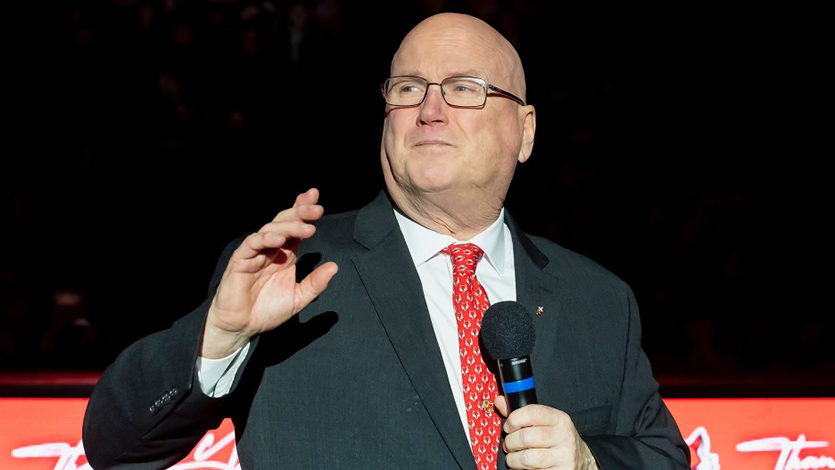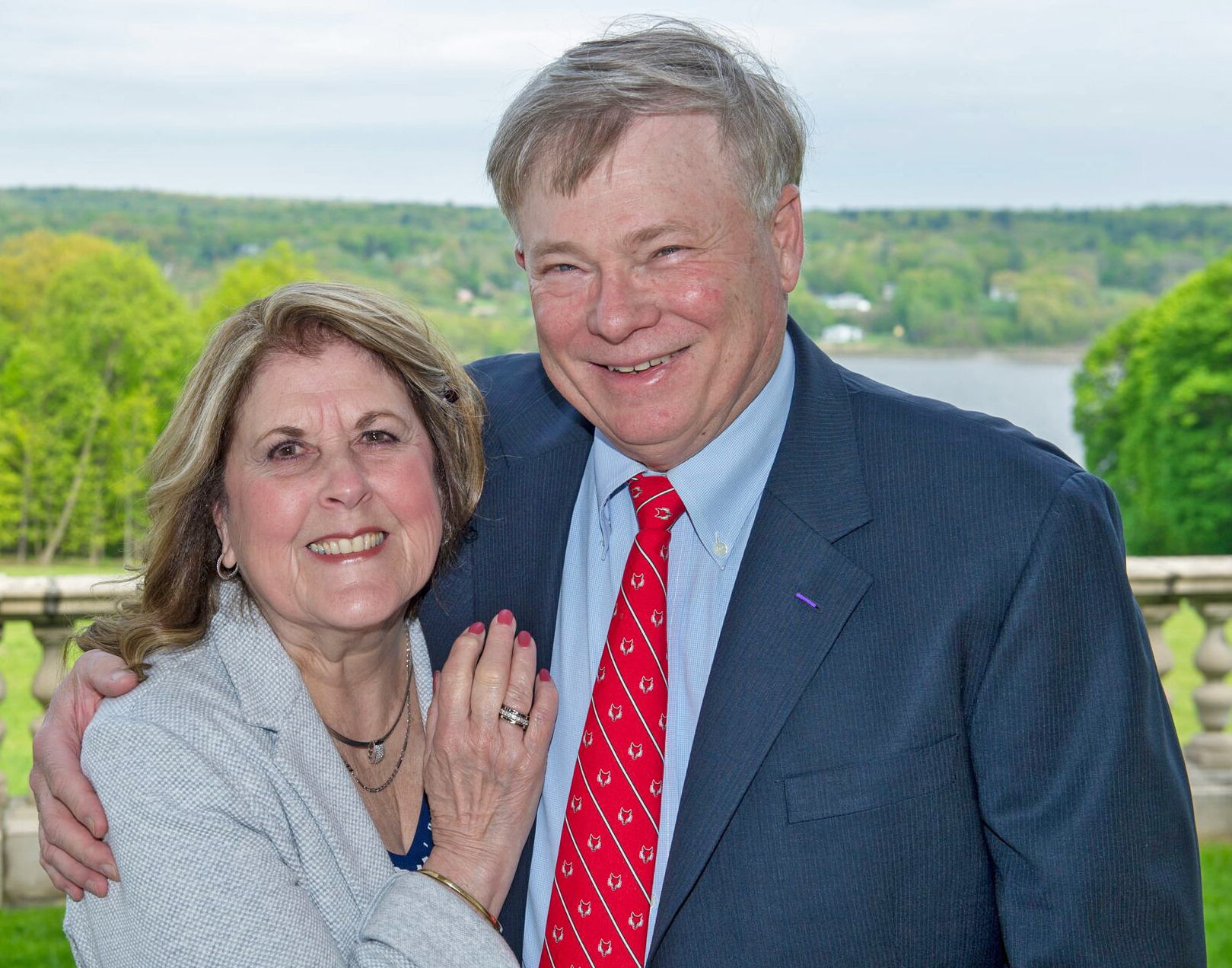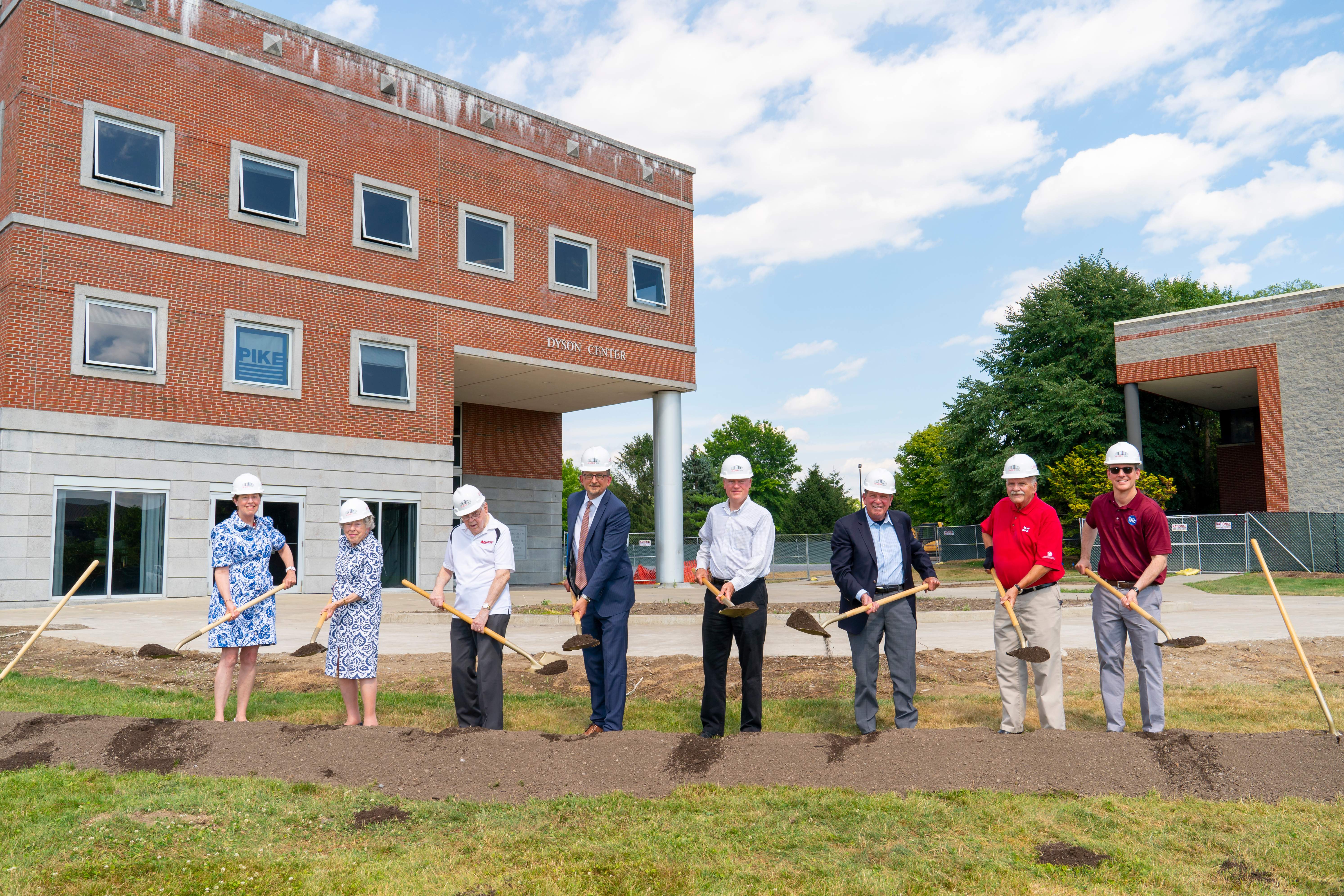Fall/Winter 2025-26

Kicker Makes Pro Bowl, Leads NFL in Scoring, Makes Playoffs
Marist graduate Jason Myers completed a magnificent 2022 season for the Seattle Seahawks, one which was complete with late-game heroics, postseason play, outstanding statistics, and terrific accolades.Myers is in his eighth season in the NFL as a placekicker and his fourth with the Seahawks. On the last day of the NFL regular season on Sunday, Jan. 8, Myers’ 32-yard field goal in overtime lifted the Seahawks to a 19–16 victory over the Los Angeles Rams. This result, coupled with the Detroit Lions’ victory over the Green Bay Packers, secured a playoff berth for the Seahawks. Although Seattle fell to San Francisco in the wildcard round, Myers made his presence felt with a 56-yard field goal on the final play of the first half.Myers was rewarded with his second career trip to the Pro Bowl and was named First Team All-Pro by the NFL Players’ Association. In the 2022 regular season, Myers led the NFL in scoring with 143 points. He converted 34 of his 37 field goal attempts and 42 of his 43 extra point tries. He also had 54 touchbacks on kickoffs.Myers is a 2013 Marist graduate who was a four-year member of the football program from the 2009 through 2012 seasons. He set the program record for longest field goal in 2011, which came from 49 yards out. That mark was equaled by Luke Paladino in 2019.Myers started his NFL career in Jacksonville. He kicked for the Jaguars from 2015 to 2017 before enjoying a Pro Bowl season with the New York Jets in 2018. He then signed a multiyear contract with Seattle in March of 2019.
10 Jan 2023

Women’s Basketball Coach Brian Giorgis celebrated after his final home game for making a huge impact both on and off the court.
Women’s Basketball Coach Brian Giorgis celebrated after his final home game for making a huge impact both on and off the court.
02 Mar 2023

Looking back on two decades of serving students, heritage tourists, scholars, educators, environmental organizations, the business community, and the general public who seek to know more about a region that has been called "the Landscape that defined America."
The Hudson River Valley Institute, a Center of Excellence at Marist dedicated to studying the history and culture of the Hudson River Valley, celebrated its 20th anniversary throughout 2022 with a variety of programs and initiatives involving the Marist community and beyond.To mark the occasion, the staff at the institute wrote an article that appears in the spring 2022 issue of HRVI’s peer-reviewed journal of regional studies, The Hudson River Valley Review. The article highlights many of the organizations (including the National Endowment for the Humanities and the Hudson River Valley National Heritage Area), people, and programs of prominence during the first 20 years and features the evolution of HRVI’s website www.hudsonrivervalley.org, a digital resource that houses materials for researchers, educators, heritage tourists, and the general public. Further, the article recognizes the essential role of the nearly 200 Marist students who have completed internships since 2002.In celebration of the ever-growing group of Marist alumni who have completed an internship, HRVI has been featuring former students in a yearlong social media initiative on Instagram and Facebook. These updates have been seen by more than 20,000 people and show the variety of career paths that can come from the institute’s interdisciplinary internship experiences. In the interview-style spotlights, alumni reflect on the importance of their time at HRVI to their education and work, with careers such as teaching, library sciences, public history, and law all featuring prominently among the individuals recognized. Many intern alumni cite their experience as being a transformative time in their development from undergraduate students to job candidates and professionals, and their work with the HRVI staff as their first experience putting classroom education to use in a professional setting.In addition to a year of celebration, 2022 has also been a year of transition for HRVI. In conjunction with the retirement of Col. (Ret.) James M. Johnson, the institute’s founding executive director and Dr. Frank T. Bumpus Chair in Hudson River Valley History, HRVI launched an ongoing fundraiser to establish the endowed Dr. James M. and Lois S. Johnson Student Research Fund. The fund is designed to enable interns to undertake more impactful experiences and develop more in-depth projects as well as to allow students from a variety of economic backgrounds equal access to the enrichment potential that comes from a fully realized internship with HRVI.“From our beginning, interns have been the lifeblood of HRVI,” said Johnson. “Their work becomes part of HRVI’s publicly available content and provides them with valuable experience that prepares them for graduate school and for their careers. Lois and I have each spent many years as educators and as supporters of Hudson River Valley history, and we are deeply honored to have an initiative that combines both of those passions and bears our names.” To learn more about the Johnson Student Research Fund, visit www.hudsonrivervalley.org/johnsonstudentfund.On Aug. 20, 2022, at Marist’s historic Colonel Oliver Hazard Payne Mansion, HRVI staff, supporters, friends, and intern alumni gathered to formally mark the 20th anniversary of the institute and honor Johnson on his retirement. The program included remarks from HRVI Director Dr. Thomas Wermuth ’84 and Advisory Board Chair Alex Reese among others. Dr. Johnson received a Certificate of Appreciation from New York State Historian Devin Lander recognizing his many contributions to the study of the history of New York, with specific emphasis on his work studying the American Revolution. The guests included approximately 30 former interns dating from the very first group in 2002 through members of the recently graduated Class of 2022, many of whom met for the first time at the event.HRVI’s year of transition continued at the 11th annual Handel-Krom Lecture in Hudson River Valley History on Sept. 29, which was offered as the institute’s first program combining both in-person and virtual attendees after several years of successful programming that was offered online only. The lecture featured author Philip Dray discussing his recently published book, A Lynching at Port Jervis: Race and Reckoning in the Gilded Age. During the event, Wermuth announced HRVI’s Operations Director Andrew Villani ’08/’13MPA as the institute’s new executive director.A former student of Johnson’s and former intern at HRVI, Villani has been a member of the institute’s team since 2008, serving in several different roles.“Our 20th anniversary has been a great opportunity to look back at the early days and celebrate the contributions of our founders, early supporters, and many student interns who helped to get HRVI off the ground,” said Villani. “It has also given us a chance to look to the future and identify new opportunities to build on that growth and success in a meaningful way. I am thrilled and honored to guide the Hudson River Valley Institute into its next 20 years.”Planning is already underway for 2023. “We are already looking at the next round of articles for publication, projects for our internships, and speakers for our two major lectures,” said Villani. “Stay tuned for an exciting array of programs coming up in the near future!”Left to right are Alex Reese, chair of the HRVI Advisory Board; Dr. Thomas Wermuth ’84, HRVI director; Andy Villani, executive director; Col. (Ret.) James M. Johnson, Dr. Frank T. Bumpus Chair in Hudson River Valley History; Christopher Pryslopski, HRVI senior program director; Jason Schaaf, HRVI education coordinator; and Devin Lander, New York State Historian. Photo: Al Nowak/On Location Studios.Guests included approximately 30 former interns. In total, nearly 200 Marist students completed internships with HRVI since the establishment of the institute in 2002. Photo: Al Nowak/On Location Studios
28 Oct 2022

A reimagined home for the School of Management, School of Social and Behavioral Sciences, and Center for Career Services takes shape.
Marist College has officially broken ground on a major expansion and renovation of the Dyson Center, the home of the College’s Schools of Management and Social and Behavioral Sciences. Members of the academic administration, student body, and other dignitaries, led by Marist Trustee and Dyson Foundation Chair Rob Dyson, put shovels in the ground in July for the $60 million project, paving the way for a facility that will serve as a campus centerpiece and will double the size of the former building. The construction project is supported by a lead gift from the Dyson Foundation. Founded in 1957 and based in Dutchess County, the Dyson Foundation works to improve people’s lives through grant funding, promoting philanthropy, and strengthening the capacity of nonprofit organizations. The new Dyson Center, rendering courtesy of Ann Beha Architects, now Annum Architects."I have been in the unique position to watch the incredible growth of Marist over four decades," said Dyson, a past chair of Marist’s Board of Trustees. “It heartens me that the new Dyson Center will be a centerpiece of learning and collaboration for many years to come."The original Dyson Center opened in 1990. The expansion and renovation have been designed by the internationally recognized firm Annum Architects (formerly Ann Beha Architects). The new facility will feature state-of-the-art classrooms; faculty offices; a 150-seat tiered lecture hall; and labs for student–faculty research, especially in the areas of cognitive, developmental, and social psychology.The building will also boast a number of multipurpose collaboration spaces for student and faculty use and will incorporate many sustainable elements, reflecting the College’s long-standing commitment to the environment. There will also be expansive new common areas, including an atrium with a soaring ceiling, a café, a lounge, and abundant social and collaborative space.The Collaborative Study Center in the new Dyson Center. Rendering courtesy of Ann Beha Architects, now Annum Architects.The new Dyson Center will bring a wealth of new resources to the School of Social and Behavioral Sciences and the School of Management. Within the School of Social and Behavioral Sciences, teacher education students will have a new STEM classroom with an adjoining creative space. Psychology, criminal justice, and pre-law students will also be able to use unique learning spaces.The School of Management will include an expanded Student Investment Center with a professional trading floor providing the same technology found on Wall Street. It will also house the school’s Advising Center and the Bureau of Economic Research."The new Dyson Center will be an inspiring place for teaching, learning, research, and collaboration," said Marist President Kevin Weinman. "With its beautiful design, central location, and ample public space for socializing, group study, and individual work and reflection, students of all disciplines will benefit from this truly transformative facility. My sincerest thanks to Rob Dyson and everyone at the Dyson Foundation, Ann Beha, Marist’s Board of Trustees, and President Emeritus Dennis Murray for their work over many years to bring this vision to life.""The new Dyson Center will have specialized spaces for psychology labs, a mock courtroom, a command center, a therapy suite, a K–12 teacher training lab, maker space, and general classrooms configured to maximize current best practices for college instruction," said Dr. Deborah Gatins, dean of Marist’s School of Social and Behavioral Sciences. "I look forward to even more exciting faculty and student collaboration on projects and research.""For School of Management students, this building will create new opportunities to learn in an attractive environment," said Dr. Will Lamb, dean of Marist’s School of Management. "The classrooms are designed to allow our faculty and staff to adapt the layouts to the subject being taught. The new homes for our Investment Center and the Center for Career Services will help students prepare for and launch their careers in exciting new ways. The building will elevate the student experience and help us continue to attract the best and the brightest."The mock courtroom in the new Dyson Center. Rendering courtesy of Ann Beha Architects, now Annum Architects.The Center for Career Services, which offers a variety of programs and resources to assist Marist students and alumni in setting career goals and gaining employment, will also be housed in the Dyson Center."The Center for Career Services is incredibly excited about the new Dyson Center, along with its centralized location giving us a beautiful venue for hosting career and internship fairs, networking events, peer mentoring sessions, alumni/employer panel discussions, and more," said Mary Jones, executive director for the Center for Career Services. "We look forward to continuing to help Marist students achieve their career goals in this reimagined campus centerpiece."The new Dyson Center includes a number of environmentally sustainable initiatives including the adaptive reuse of the existing foundation and structure, highly insulated walls, a high-efficiency HVAC system, and a roof featuring living vegetation installed on top.The building is expected to open in spring 2024. For more photos of the groundbreaking and renderings of the design, visit marist.edu/dyson.A wide array of naming opportunities are available throughout the building. To learn more, please contact Chris DelGiorno, vice president for college advancement, chris.delgiorno@marist.edu
27 Oct 2022